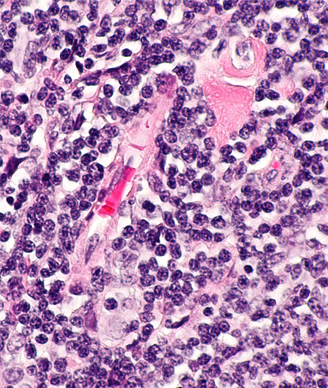
Examining Ongoing Studies of Mosunetuzumab for R/R Follicular Lymphoma and Addressing Accessibility

An expert from Rutgers Cancer Institute discusses ongoing research for mosunetuzumab in relapsed/refractory follicular lymphoma, as well as the importance of deploying the agent in the community setting.
In an interview with CancerNetwork®, Matthew Matasar, MD, discussed trials further assessing
In addition to discussing how the agent will be assessed in different lines and in other B-cell malignancies, Matasar, chief of the Division of Blood Disorders at Rutgers Cancer Institute and professor at Rutgers Robert Wood Johnson Medical School, also discussed the need for this treatment to be available not only at academic centers, but also in greater community setting.
Transcript:
There’s a lot of work ongoing, with mosunetuzumab specifically and with other bispecific antibodies as well. Most of the work being done in multiple areas: Within follicular lymphoma, it’s being tested in combination with other agents, such as IMiDs [immunomodulatory drugs] and other monoclonal antibodies.
It has been tested in earlier lines of therapy with second- and even first-line studies now open and ongoing. We’re exploring the use of mosunetuzumab in other disease settings, both in terms of other indolent B-cell lymphomas, as well as aggressive B-cell lymphomas.
What’s most important as we think about how best to deploy mosunetuzumab is to understand that this drug will only achieve its potential if we can work as a broader community, meaning community-based oncologists, and not limit it to academic centers where the minority of patients are treated.
We need to work hard to support, educate, and partner with community oncologists around the country to ensure that they have the skills resources, and knowledge to administer mosunetuzumab safely and effectively to appropriate patients.
References
- FDA approves Genentech’s Lunsumio, a first-in-class bispecific antibody, to treat people with relapsed/refractory follicular lymphoma. News release. Genentech. December 22, 2022. Accessed January 6, 2023. https://bit.ly/3FPCn7h
- Bartlett NL, Sehn LH, Matasar MJ, et al. Mosunetuzumab monotherapy demonstrates durable efficacy with a manageable safety profile in patients with relapsed/refractory follicular lymphoma who received ≥2 prior therapies: updated results from a pivotal phase II study. Blood. 2022;140(suppl 1):1467-1470.
Newsletter
Stay up to date on recent advances in the multidisciplinary approach to cancer.



































